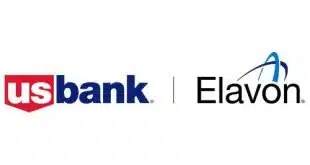After years of ever-tightening regulation in payments and other financial services, it comes as a relief to witness some of the encouraging steps Congress and the Trump administration are taking to unshackle innovation.
As our Acquiring story starting on page 20 documents, movement is afoot on a broad front to loosen the tight grip of the federal government in ways that might just hasten useful new products and services for consumers at lower cost not only to them but to banks and non-bank payments providers.
Consider the multiple signs of how this movement is proceeding: a more cautious—some would say reasonable—approach at the Consumer Financial Protection Bureau; the Justice Department’s decision to mothball Operation Choke Point, which brought civil suits against processors serving industries disfavored by the previous Administration; and a seemingly favorable attitude at the Office of the Comptroller of the Currency toward special-purpose bank charters for fintechs.
A broad-stroke indicator of the general trend in Washington, D.C., toward a lighter hand on the regulatory lever is the volume of pages published in the Federal Register, a daily government newspaper that publishes federal regulations, proposed rules, and notices. As our story documents, this page count dropped fully 34% last year after soaring to an all-time high of 95,894 pages in 2016. Last year’s 61,950 pages was the lowest count since at least 2000.
Of course, there isn’t necessarily an appetite to roll back all recent regulation. As the story makes clear, last year’s effort in Congress to repeal the Dodd-Frank Act’s Durbin Amendment, which ran out of steam at the crucial moment, isn’t likely to get moving again any time soon. The issue, which among other things involves caps on the fees big banks can charge retailers for debit card transactions, is said to be fraught with peril for legislators, since it forces them to choose between two powerful lobbying forces—financial institutions and merchants.
And whether the Trump administration will continue to take its foot off the regulatory pedal is now an open question in the wake of President Trump’s determination to impose steel and aluminum tariffs. That’s a bad omen for the economy that payments executives should watch closely, not because it affects them directly but because it could indicate the administration’s willingness to bend market forces to its will.
Still and all, the administration’s first year has proven to be a positive force for lightening the regulatory burden for the payments business. Make no mistake, the benefits will be widely felt. As the Electronic Transactions Association’s Scott Talbott says in the story: “This kind of environment can make payment products more accessible to more consumers.”
—John Stewart, Editor, john@digitaltransactions.net





